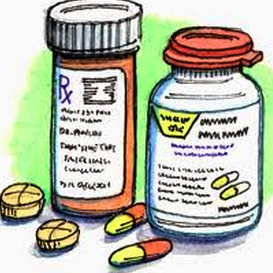Mental Health | Children taking ADHD medication experience fewer suicidal thoughts

 Pharmacotherapy for attention-deficit/hyperactivity disorder (ADHD) was found to be associated with fewer suicidal thoughts among children aged 9 and 10 years who have been diagnosed with ADHD, according to a study published in JAMA Psychiatry.
Pharmacotherapy for attention-deficit/hyperactivity disorder (ADHD) was found to be associated with fewer suicidal thoughts among children aged 9 and 10 years who have been diagnosed with ADHD, according to a study published in JAMA Psychiatry.
ADHD is associated with psychiatric co-morbidities, including suicidal thoughts, suicide attempts, and completed suicide. Although other studies have examined the association between ADHD medication and suicide, these researchers wanted to take a more granular approach.
The researchers used a large diverse cohort from the Adolescent Brain Cognitive Development (ABCD) Study, which included 11,878 children aged 9 or 10 years old at baseline.
The researchers conducted follow-up at 1 year. ADHD medications considered included methylphenidate derivatives, amphetamine derivatives, α-2-agonists, and atomoxetine.
Covariates included age, sex, race, ethnicity, parent education (mean duration), parent marital status, and child psychiatric pharmacotherapy such as antidepressants or antipsychotics.
Of the more than 11,000 children in the ABCD Study, 8.5% were treated with ADHD medication, and 8.8% reported past or current suicidal thoughts. The researchers found associations of externalizing symptoms and ADHD medication with suicidal thoughts.
For children not receiving ADHD medications, more externalizing symptoms were associated with greater odds of suicidal thoughts; however, children receiving medication had no such association. Findings were replicated in a 1-year longitudinal analysis.
 “The results offer a straightforward, actionable target to optimize prevention plans and intervention strategies in elementary school-age children with externalizing problems,” the researchers said. “Early diagnosis and treatment with ADHD medication, particularly among children with severe externalizing symptoms, may serve not only to improve learning and behavior problems, but also to decrease suicidality risk.”
“The results offer a straightforward, actionable target to optimize prevention plans and intervention strategies in elementary school-age children with externalizing problems,” the researchers said. “Early diagnosis and treatment with ADHD medication, particularly among children with severe externalizing symptoms, may serve not only to improve learning and behavior problems, but also to decrease suicidality risk.”
In addition, “childhood suicidality is associated with adult psychiatric morbidity and mortality and, thus, may represent an early marker for lifelong vulnerability to poor mental health.”
However, the study did not account for mental health interventions that may have affected results. The association of medication and suicidal thoughts was analyzed using a 1-tailed test. Participants lost to follow-up reported a slightly higher rate of externalizing symptoms. In addition, the study did not assess thoughts and behaviors over a long period of time.

